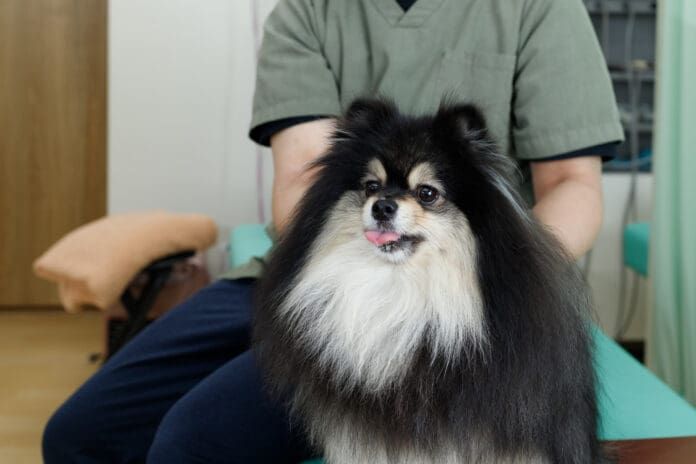Just as in a chiropractic session for humans, a dog chiropractor will palpate the dog’s spine, limbs, and even the skull to detect abnormalities in how the bones come together. Even small misalignments (called “subluxations”) can impact how that joint functions, your dog’s comfort level, and nerve function.
The dog chiropractor then uses specific motions to adjust the subluxated joint and move the bones back into place. The spine is a common focus.
Does My Dog Need an Animal Chiropractor?
Most dog lovers seek animal chiropractors when they notice their dog experiencing a chronic limp or soreness. If you compete in high-impact sports such as agility or flyball, you may opt for a dog chiropractic visit as a preventive measure to make sure your dog’s body is functioning its absolute best.
If your dog has a problem such as pain, lameness, or lethargy, it is critical to get a veterinary diagnosis. Schedule an appointment with your veterinarian so he or she can determine why your pup is hurting or not feeling himself. Why is this important? Because many different health problems can look similar at first glance but may need drastically different treatments. For example, a dog limping because of a sore back will benefit from dog chiropractic care, but a dog limping because of Lyme disease needs an appropriate antibiotic.
Once you know what is wrong with your dog, you can pursue dog chiropractic if your veterinarian agrees it is appropriate for his condition.
How Much Does a Dog Chiropractor Cost?
As with all medical care, the cost of a dog chiropractor visit can vary widely depending on where you live, the credentials of the practitioner, and the size and behavior of your dog. In general, an initial consultation costs $100 to $200, with follow-up adjustments ranging from $50 to $80.
Choosing an Animal Chiropractor
Look for a chiropractor who has been certified by the American Veterinary Chiropractic Association (AVCA) or International Veterinary Chiropractic Association (IVCA). This ensures that the dog chiropractor has had specific training on canine anatomy and joint and spinal manipulation.
Both veterinarians and certified human chiropractors with a doctor of chiropractic (DC) degree can pursue animal chiropractic certification. A human chiropractor must have special training on working with animals, as the joints and bones fit together differently in humans versus dogs. Trying to adjust a dog the same way that a human is adjusted could cause pain and even permanent damage.






